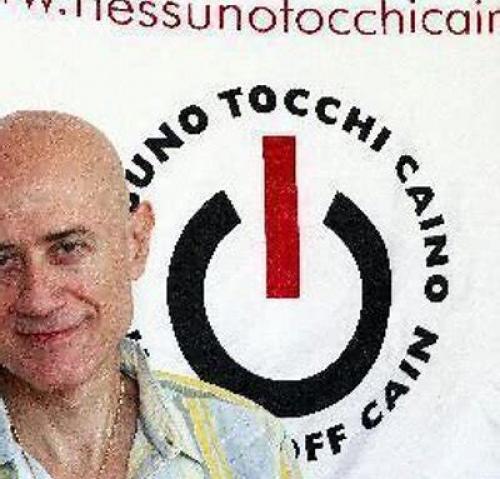05 Settembre 2018 :
Spes contra Spem
By Sergio D’Elia
Secretary of Hands off Cain
The motto “Spes contra Spem” is taken from the passage of the Apostle Paul of Tarsus in his Letter to the Romans on the unshakable faith of Abraham who “had faith hoping against all hope and thus became the father of many nations”.
It was the title of the Congress of Hands Off Cain held in December 2015 in the Opera Prison in Milan, the last to which Marco Pannella was able to participate. Marco Pannella, who in the last times of his life and with increasing insistence has repeated where it has been possible “to be hope”, that is to live as a subject actor of hope, to live in the way we hope things would go, being ourselves a proposal, a proof and a body of the change we want to see in others. “To be hope” rather than “to have hope”, hope as an object, simply understood as something else from us, of which we expect it to occur.
The last time I heard Pannella say this was in the Kollo prison, in Niger, on a sunny Saharan afternoon, in front of a hundred prisoners sitting on the ground that Marco hypnotized with the magic formula of having to be hope, not only for them- selves but also for the people who love us and whom we love. It was a memorable event! Prison can be a place and a time where you can lose yourself forever, but it can also be the place and time in which you can meet and be saved forever, be reborn to new life.
In the days of the Opera Congress, we met and talked a lot with prisoners serv- ing life sentences, men who, denied by law the hope with a “end of punishment: never”, decided to incarnate it, to be the source of an active process of change.
The director Ambrogio Crespi has drawn indeed an extraordinary docufilm of it. “Spes contra Spem. Freedom inside”, a work in which the protagonists, in spite of the “end of punishment: never” that marks the detainees sentenced to “ergastolo ostativo” (life sentence without the possibility of parole), an indelible mark that wants to say “you will never change”, show how it was possible for them to change. Despite the evidence of the inside context in which they live and of the external context apparently and, in certain cases, indeed hostile, the “lifers” show that they understood the sense of the words of Ghandi: “Be yourself the change you want to see in the world “, that it is necessary to operate always prefiguring today the tomorrow that we want to realize.
Also for me it has been this way. It was in jail that I changed my way of thinking, feeling, acting, in a few words: the way of being and living.
Who knows how many lives we have lived, how many lives are flowing and will flow in our one life. In the end, none of us can claim to have lived only one, the same, identical life.
Coherent it is not he who never changes: opinions, habits, ways of being; coher- ent is he who uses means and methods of struggle consistent with the objectives of the struggle.
And in this coherence of means and goals, courageous is not he who dares to
challenge the powerful enemy, an absolute and overbearing power, immolating the body of others and his own, on the altar of an ethic of sacrifice and death, perhaps liberating and redemptive.
No: courageous is the one who gives his body to happiness, tolerance, dialogue, love.
“The only courage you need to have in life is to love!” is written in Passage in Shadow, the novel by ariateresa Di Lascia, writer and founder of Hands off Cain. The courage to love has been the distinctive sign of her civil appointment, of her political passion, because Mariateresa understood love the way of the Little Prince, the book of Antoine de Saint-Exupéry where it is written that “to love someone means to be responsible and take care of one’s life”.
Abraham, ready to sacrifice his long-awaited son Isaac, “had faith hoping against all hope ... and thus became the father of many nations”. Being, embodying hope, a new possible can be generated, against the probable taken for granted, nations can be generated. Cain himself, after the killing of Abel, his brother, is not touched by anyone, is protected by the Lord, and becomes builder of cities.
These are ancient, but very actual histories and all in the name of the rebirth, of regeneration, of reparation and of active conversion. “Spes contra Spem – Freedom Inside”, to look well, is not a film about life imprisonment, it is a manifesto on the change that concerns our life and the way to live of each of us. It is the manifesto of a new commitment that is added to the one for the abolition of the death penalty, that is to say for the abolition of the sentence until death, that in Italy has the form of the ergastolo ostativo






